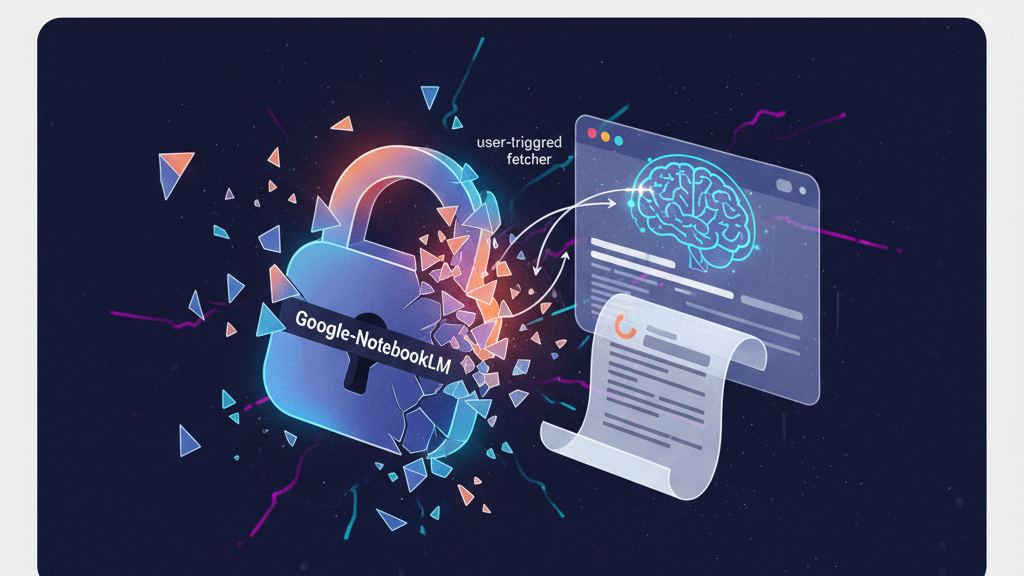
In a subtle yet significant update, Google has clarified that its AI research tool, NotebookLM, does not adhere to the traditional robots.txt directives that websites use to control bot access. This change has implications for webmasters and content creators concerned about how their material is accessed and utilized by AI systems.
Understanding NotebookLM and Its Fetching Behavior
NotebookLM is an AI-powered tool developed by Google that allows users to input URLs, which it then processes to generate summaries, answer questions, and create interactive mind maps based on the content. This functionality is part of Google’s broader suite of AI research and writing tools.
Previously, Google’s documentation did not explicitly mention how NotebookLM interacted with robots.txt files. However, recent updates have added NotebookLM to the list of “user-triggered fetchers,” a category of Google agents that perform actions on behalf of users. According to Google’s guidelines, these fetchers generally ignore robots.txt rules because the fetch was requested by a user Google for Developers.
Implications for Website Owners
The inclusion of NotebookLM in this category means that when users input a URL into NotebookLM, the tool may access and process the content of that page, even if the site’s robots.txt file disallows such access. This behavior is consistent with Google’s approach to user-triggered fetchers, which prioritize user requests over site-level access controls.
For website owners who wish to prevent NotebookLM from accessing their content, it’s important to note that traditional robots.txt directives may not be effective. Instead, they can consider alternative methods such as:
- Implementing HTTP Authentication: By requiring a username and password to access content, websites can restrict unauthorized access, including from AI tools like NotebookLM.
- Using Meta Tags: Incorporating
<meta name="robots" content="noindex, nofollow">tags in the HTML of pages can instruct search engines and some bots not to index or follow links on those pages. - Blocking User Agents: Webmasters can configure their server settings to block specific user agents associated with NotebookLM, such as
Google-NotebookLM. This can be done through server configurations or security plugins Search Engine Journal.
Broader Context and Industry Reactions
The decision to have NotebookLM ignore robots.txt aligns with a broader trend where AI tools and bots, especially those not primarily designed for indexing, bypass traditional web access controls. This has raised concerns among content creators and website owners about the extent to which their material is being accessed and utilized by AI systems without explicit permission.
In response, some organizations are exploring alternative methods to control AI access to their content. For instance, Cloudflare has introduced a “Content Signals Policy” that allows website owners to set explicit permissions for whether their content can be used in AI training, shown in search results, or input into AI systems Windows Central. However, the effectiveness of such measures depends on widespread adoption and compliance by AI service providers.
Conclusion
Google’s clarification that NotebookLM ignores robots.txt is a reminder of the evolving landscape of web content access and AI interaction. Website owners who wish to maintain control over how their content is accessed and utilized by AI tools may need to adopt more proactive and technical measures beyond traditional robots.txt directives. As AI continues to play a significant role in content consumption and analysis, ongoing discussions and developments in this area are expected.





